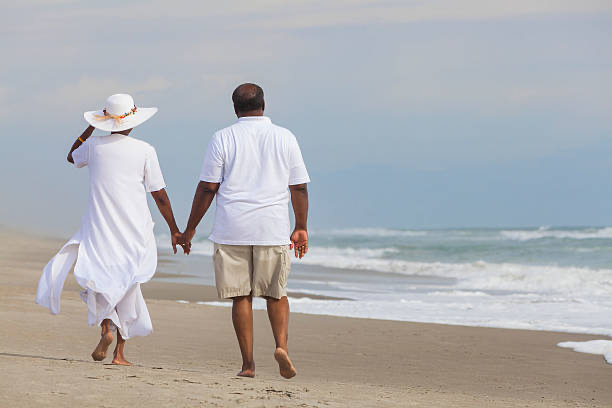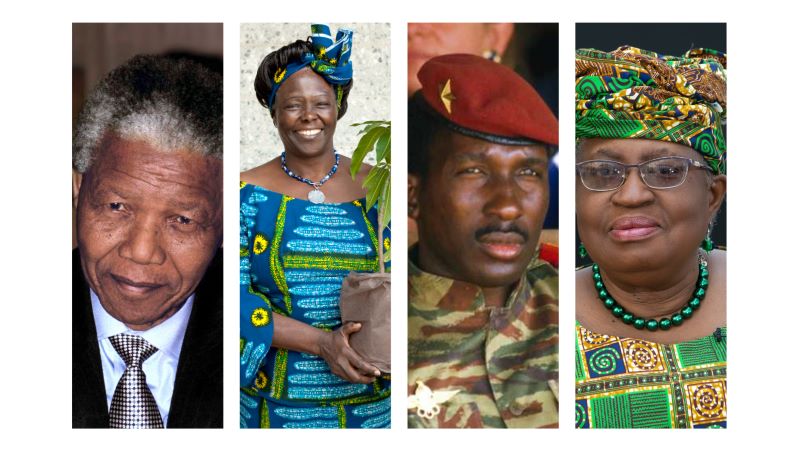Source: iStock
In African societies, the institution of marriage is as complex as it comes. With many cultures observing long-standing traditions, norms, and procedures by which the union between a man and woman is conducted, marital choices undergo a certain level of scrutiny and considerations that require the involvement of family, and communities in the selection of spouses.
An arranged marriage refers to a marital union where families, often parents or elders, play a significant role in selecting or introducing potential spouses. This differs from forced marriages where individual consent is disregarded.
Around the continent, the practice of arranged marriages as part of a cultural norm still exists. While many societies both in Africa and other continents consider such practice unsuitable in this modern era, several others consider it germane especially as several factors such as divorce have become a key threat to the institution of marriage.
The Institution of Marriage in The African Context
Marriage in African societies is not only seen as a man and woman coming together to be Marriage in Africa transcends the idea of a personal or romantic decision. It’s often linked to the collective interest of families and ethnic communities who ensure that values, customs, and even lineages are preserved.
For instance, among the Igbo people of Nigeria, the ritual of Iju Ese (“family background check”) is performed to investigate the prospective spouse’s history. Communities such as the Akan of Ghana and the Amhara of Ethiopia follow similar structured systems that ensure compatibility, lineage clarity, and cultural sustainability.
Arranged Marriages in African Societies – A Revised Version
The Institution of Marriage has continued to remain an important pillar in African societies. The inner workings that give rise to the progress or conflict amongst each family unit are reflected in the social cohesion of the communities. To protect histories and lineages, ensure shared values and compatibility, arranged marriages are orchestrated between families and in some cases amongst communities with historical ties dating back several generations.
While arranged marriages continue to elicit disdain due to the misconception of tying them with forced marriages, the dissimilarity between both is quite distinct. While one brokers no dissent (forced marriages), the other has continued to evolve into a more progressive version as potential spouses are introduced to each other by their respective parents and encouraged to explore a relationship to determine compatibility.
While this might be beneficial in some scenarios, it also throws up several challenges that ultimately do not achieve the desired objectives.
Let us explore the pros and cons of arranged marriages.
Read also: CELEBRATION OF LOVE – AN IGBO WEDDING
Pros of Arranged Marriages

Source: iStock
Family Stability: Top on the list of benefits of arranged marriages is the need to guarantee family stability. With the growing rate of divorce and domestic violence in homes, families begin to explore unions that promise not just the stability of marital homes but also preserve the cultural and family values inherent within.
Exploiting long-standing relationships with shared values and socio-economic backgrounds, parents leverage such opportunity to provide compatible options for their children while also providing them with all the counsel and necessary support to resolve conflicts whenever they arise to give their children a more stable and healthy relationship.
Economic Stability: Another argument for the benefit of arranged marriages is the guarantee of economic stability through the pooling of financial resources. Families in strategic alliances often explore mutually beneficial opportunities within their social circles by encouraging relationships between their children to further secure the future and financial stability of the present and coming generations.
Preservation of Culture, Tradition and Religion: Many families and communities have long-standing values, traditions as well as religious dispositions which often guide the way the family or community operates and interacts with each other. In an effort not to disrupt social cohesion, marriages are arranged between families who either share the same values, or one closely related to such a belief system. This is a common practice among religious homes where children from Muslim homes have Muslim spouses selected for them.
Mutual Progress: Arranged marriages may not start with the fiery feelings as is common with conventional romance. In some cases, couples who explore arranged marriage options discover that many of their values and ideals about marriage, finances, and raising a family align. This knowledge encourages them to commit to the relationship and in time not only does their union deepen but they grow to love and appreciate each other as the years pass by.
Reduce the Rates of Marriage Breakup: As earlier mentioned, marriages in Africa whether it be through personal choices or arranged, are not restricted to the couples alone. The communal nature of African societies entails that the union is also an extension of families both nuclear and extended as well as communities.
Divorce rates are greatly reduced as each member of the family unit of the respective spouses provides support as well as addresses disputes that may arise in situations where the couple in question cannot find a common ground. These acts of mediation help couples work through their differences rather than calling it quits.
Read also: IGBO FAMILIES PROVIDE SUPPORT FOR NEWLY MARRIED COUPLES
Cons of Arranged Marriages

Source: iStock
Absence of Personal Choice: Despite the advantages of arranged marriages, a question arises on the absence of individual consent more so when influenced at the behest of both families who appear more focused on securing their economic interests at the detriment of their children.
In some cases, the couples in question out of a sense of duty, obligation, and respect may adhere to the requests of their parents but experience emotional resentment in the long run.
Incompatibility and Marital Abuse: Couples in arranged marriages run the risk of marital abuse due to incompatibility which was ignored to satisfy family interests. Love, intimacy, and emotional connection become absent as couples battle individual personality differences, values, and ideals.
As a result of this disconnect, many couples begin to deal with physical or emotional abuse and in some cases both from their partners. In the end and despite seeming best efforts by family members, many of these marriages do not last.
Inherited Family Conflict: Arranged marriages can go through upheavals in the event conflicts begin to surface amongst both families of the couple. In a bid to protect family interests, couples can be drawn into taking sides which in turn affects their relationship and sets back any progress made in the union.
Limitations to Social Progress: Arranged marriages can be a stumbling block that may hinder one’s social climb on the ladder of progress. Because arranged marriages are attached to specific interests especially when initiated by parents, certain expectations are required for the couples which might run contrary to the pursuit of their dreams and interests as a result of their need to conform.
Certain acquaintances, relationships, or job pursuits become out of bounds in a bid to protect the interests and concerns of family members against the progress of the couple.

Source: iStock
As the world continually evolves, arranged marriages continue to undergo several modifications to bring them in tune with current realities and expectations. Ultimately, the choice of whom to marry resides solely with the individual with family members supporting and offering counsel every step of the way.

Okechukwu Nzeribe works with the Onitsha Chamber of Commerce, in Anambra State, Nigeria, and loves unveiling the richness of African cultures. okechukwu.onicima@gmail.com





